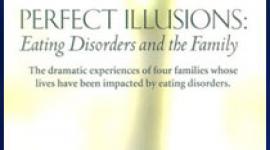What You Can Do to Help Prevent Eating Disorders

Discourage the idea that a particular diet, weight, or body size will automatically lead to happiness and fulfillment.
If you think someone has an eating disorder, express your concerns in a forthright, caring manner. Gently but firmly encourage the person to seek trained professional help.
Basic Principles for the Prevention of Eating Disorders
Every family, group, and community is different in terms of what might contribute to effective primary prevention. Thus, before we offer some specific suggestions for the prevention of eating disorders, we encourage you to consider adopting four principles which are generally applicable to doing prevention work in your family, your community, and your own life.
- Eating disorders are serious and complex problems. Their expression, causes, and treatment typically have physical, personal, and social(i.e., familial) dimensions. Consequently, one should avoid thinking of them in simplistic terms like "anorexia is just a plea for attention" or "bulimia is just an addiction to food."
- Prevention programs are not "just a women's problem" or "something for the girls." Males who are preoccupied with shape and weight can also develop disordered eating patterns as well as dangerous shape control practices such as steroid use. Moreover, objectification and other forms of mistreatment of women by men contribute directly to two underlying features of an eating disorder: obsession with appearance and shame about one's body.
- Prevention efforts will fail, or worse, inadvertently encourage disordered eating, if they concentrate solely on warning parents and children about the signs, symptoms, and dangers of eating disorders. Therefore, any attempt to prevent eating disorders must also address:
- Our cultural obsession with slenderness as a physical, psychological, and moral issue,
- The distorted meaning of both femininity and masculinity in today's society, and
- The development of people's self-esteem and self-respect.
- If at all possible, prevention "programs" for schools, churches, and athletics should be coordinated with opportunities for individuals in the audience to speak confidentially with a trained professional and, where appropriate, to receive referrals to sources of competent, specialized care.
What does Prevention Really Mean
Prevention is any systematic attempt to change the circumstances that promote, sustain, or intensify problems such as eating disorders.
Primary prevention refers to programs that are designed to prevent the occurrence of the target disorder before it begins, in other words, to promote and sustain healthy development. Primary prevention of eating disorders programs are often incorporated into the ongoing work of parents, teachers, clergy, and coaches.
Secondary prevention is designed to facilitate identification and correction of a disorder in its early stages when it is less likely to be a "lifestyle" and less likely to be associated with other significant problems like depression. Secondary prevention involves education about (a) "warning signs," (b) effective ways to reach out to people in distress, and (c) referral to appropriate sources of treatment.
Why Preventing Eating Disorders is Important
Approximately 5-10% of postpubertal girls and women suffer from an eating disorder or borderline condition. A great many more girls and women and a significant minority of men find their lives restricted by a negative body image and unhealthy weight management practices.
Consider that, at any given time, approximately 20% of our population suffers from a mental disorder or emotional problem. This means that mental health professionals will never be able to adequately respond to the 4-5 million girls and women who are suffering from full-blown eating disorders or borderline variations, let alone those who are unhealthy and unhappy chronic dieters.
Primary prevention is the only solution. Moreover, we truly believe that identifying and changing the conditions which promote eating disorders will improve the psychological and physical health of virtually everyone in our society, male and female alike.
next: Desire to Be Perfect Makes Treating Anorexia Difficult
~ eating disorders library
~ all articles on eating disorders
APA Reference
Gluck, S.
(2008, December 5). What You Can Do to Help Prevent Eating Disorders, HealthyPlace. Retrieved
on 2024, April 16 from https://www.healthyplace.com/eating-disorders/articles/what-you-can-do-to-help-prevent-eating-disorders

